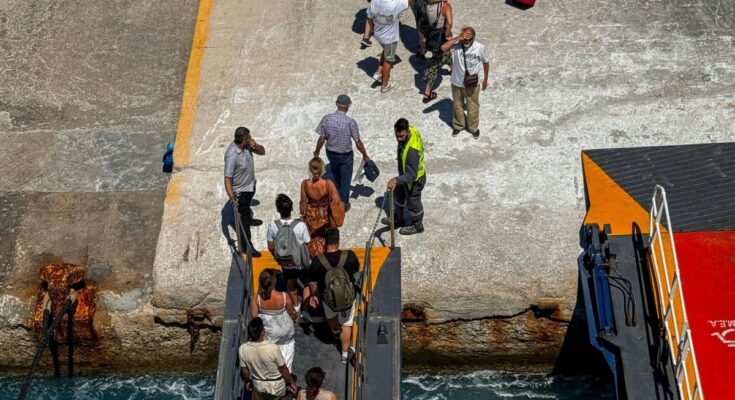
Starting May 1, ferry ticket prices in Greece are expected to rise by 12 to 15 percent, according to the Association of Passenger Shipping Businesses (SEEN).
Speaking to the Greek media, SEEN President Dionysis Theodoratos explained that the price increases are linked to new European Union regulations on marine fuel. He added that the association is exploring alternative solutions to minimize the impact on passengers.
As of May 1, 2025, the Mediterranean Sea will officially become a Sulphur Emission Control Area (SECA). This designation requires ships to use fuel with a sulfur content of no more than 0.1 percent — significantly lower than traditional fuel. However, these low-sulfur fuels are 35 to 40 percent more expensive than conventional ones.
“A substantial part of this cost will be reflected in ticket prices,” explained Theodoratos. “Fuel expenses represent 45 to 50 percent of a ferry’s operational costs. Since 2009, operational expenses have skyrocketed due to rising fuel prices, wage increases, and higher costs for spare parts, repairs, and vessel maintenance.”
These new regulations will particularly affect ferry routes serving the Cyclades, Crete, the Dodecanese, and the North Aegean islands.
Environmental regulations increasing costs

In addition to the sulfur regulation, Theodoratos highlighted a second EU rule targeting carbon emissions. He explained that for every ton of fuel burned by a ferry, approximately three tons of carbon dioxide (CO₂) are emitted. Ferries serving Crete and routes in the Adriatic are already subject to carbon emissions taxation, while routes to destinations with fewer than 200,000 residents are temporarily exempt.
“For Crete, where both regulations apply, ticket prices are expected to increase by 12 to 15 percent,” said Theodoratos.
Proposals to manage operational costs
The SEEN president outlined several measures that could help reduce the operational costs of ferries and limit ticket price increases:
– Fuel subsidies: Coastal shipping companies should be able to purchase new low-sulfur fuels at the same price as conventional ones.
– Enhanced transportation equivalent program: Reimburse a portion of ferry ticket costs to island residents.
– Social security contribution subsidies: Adopt a model similar to Italy, where employers’ social security contributions are subsidized.
€1 Billion investment in fleet modernization

Theodoratos noted that Greek ferry operators have invested more than 1 billion euros in new vessels over the past decade. He highlighted that ferry price increases are largely driven by EU policies and called for government subsidies and EU support to ensure the sustainability of the sector.
“We have one of the best fleets in Europe,” he said. “Green transformation is expensive, but it’s essential. We must find solutions to avoid overburdening both passengers and ferry companies.”
SEEN’s president concluded by noting that the future of marine fuel remains “uncertain”, with alternatives such as methanol and biofuels still under consideration.
Follow GTP Headlines on Google News to keep up to date with all the latest on tourism and travel in Greece.
Source link



